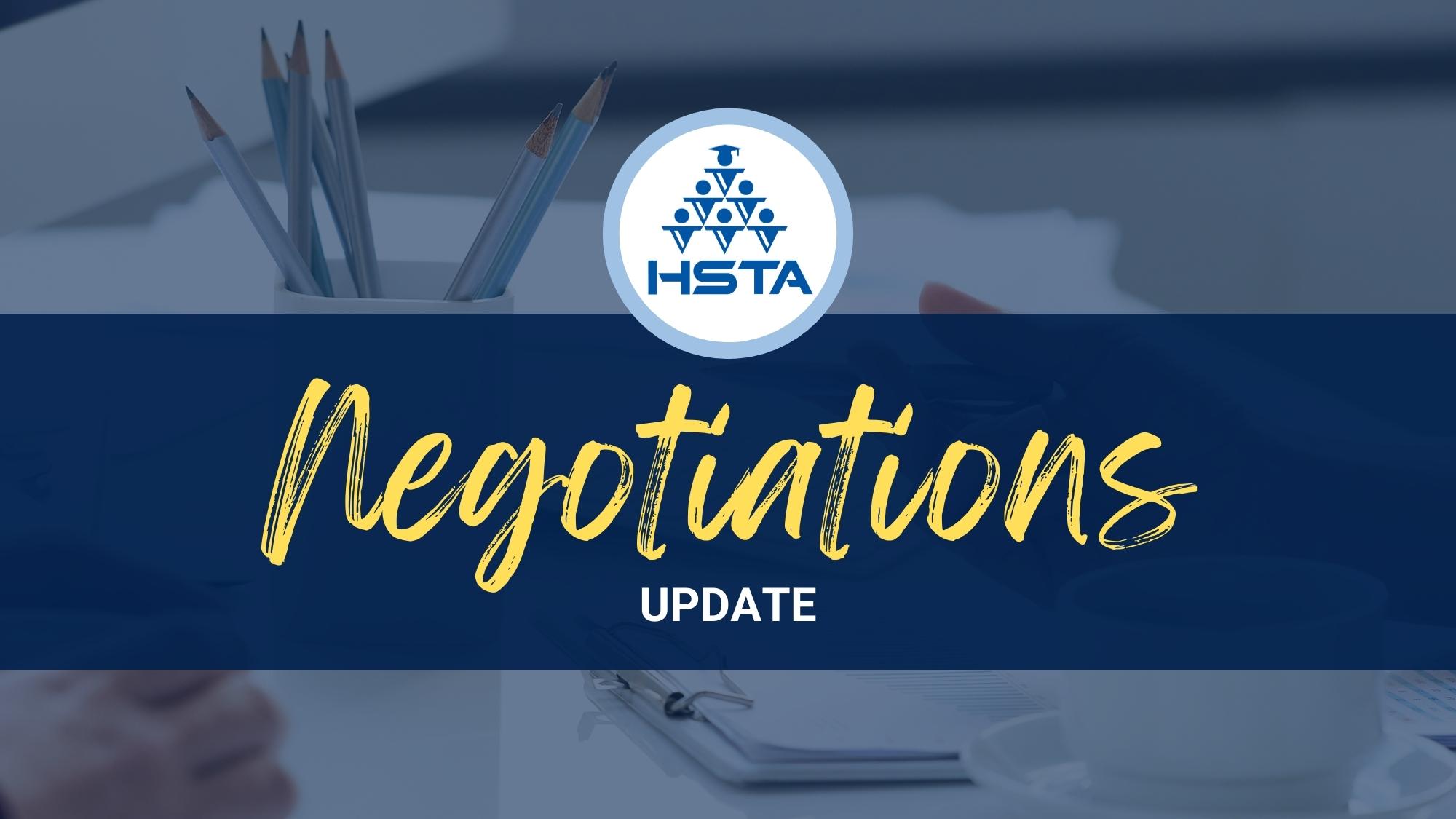Turn in ideas about changing our contract by the end of September
Posted: August 25, 2022
A negotiations survey completed by more than 2,100 Hawaii State Teachers Association members earlier this summer found they prefer across-the-board pay raises as the best way to improve compensation. These results will help the HSTA Negotiations Team as it prepares to begin negotiating a new contract with the employer later this fall.
Forty-five percent of those who answered the survey chose across-the-board pay increases as the most important option for increasing compensation in the next contract. Step movements were the next highest preference for compensation improvements, with 25% choosing them as their first option. Two other categories each received 11% as top priorities: increasing the number of salary classes along with continuing and improving shortage differentials.
Members also consider the need for more paid preparation time as a high priority. When asked about the best option to create more “paid” time for planning and preparation, 44% of survey respondents said they would prefer the time to be taken from existing administration time for those tasks.
The HSTA’s Negotiations Committee has been reviewing the survey results over the summer and will meet in early September to discuss and make recommendations to the Negotiations Team as they begin compiling bargaining proposals to submit to the employer later this fall.
Your Negotiations Team is made up of Negotiations Committee Chair Diane Mokuau from Molokai, along with committee members Jeanne Olayon from Hilo, David Negaard from Maui, and Kathy Shibuya from Kauai, plus HSTA President Osa Tui, Jr, Vice President Logan Okita and Secretary-Treasurer Lisa Morrison. As the team begins preparing for the next round of bargaining, there’s still time to submit suggestions on issues that are most important to you! Please use this form to submit your ideas for contract changes and what you’d like the team to bargain for by Sept. 30.
Other state employees negotiated extensions to their two-year contracts through June 30, 2025. The contract extensions included pay raises from July 2023 through June 2025. HSTA received a similar offer, but there was a catch. To secure those contract extensions, the other bargaining units sacrificed the ability to negotiate on any items, except health premium increases, through June 30, 2025.
This is a bargaining tactic the employer has used with HSTA since at least 2017 — a take-it-or-leave-it strategy where accepting pay increases precludes any further discussions and modifications on important topics.
Last spring, HSTA countered the state’s offer to extend our contract by two years with improvements including a lump sum payment, salary increases and step movements through June 2025, reopener language for health benefit payments for the last two years, and a letter of commitment from the interim superintendent to address non-cost items for the contract duration. Later in the spring, the employer rejected HSTA’s counteroffer and withdrew its proposal altogether.
Our current contract will expire June 30, 2023 with HSTA retaining the right to engage in meaningful negotiations on all contractual matters during the 2022–23 school year. In addition, HSTA has the advantage of knowing what all the other units settled for in the 2023–24 and 2024–25 school years. There will also be different parties at the negotiations table, including a newly elected governor after Dec. 5, potentially a new chief negotiator for the state, and a new permanent schools superintendent, Keith Hayashi.
Recent changes in the law also provide HSTA the opportunity to explore the possibility of modifying or restructuring the pay schedule to include added classifications beyond Class VII. That potential change was made possible after both the House and Senate unanimously passed Senate Bill 2819 and Gov. David Ige signed it into law this summer.
In addition, HSTA is currently working with the employer to finalize implementation plans to address salary compression for nearly 9,000 members via repricing, which is estimated to deliver more than twice as much money to HSTA’s bargaining unit members than what the state offered through an extension of the current contract, not counting tens of millions more for restored job-embedded professional development and continued shortage differentials.

